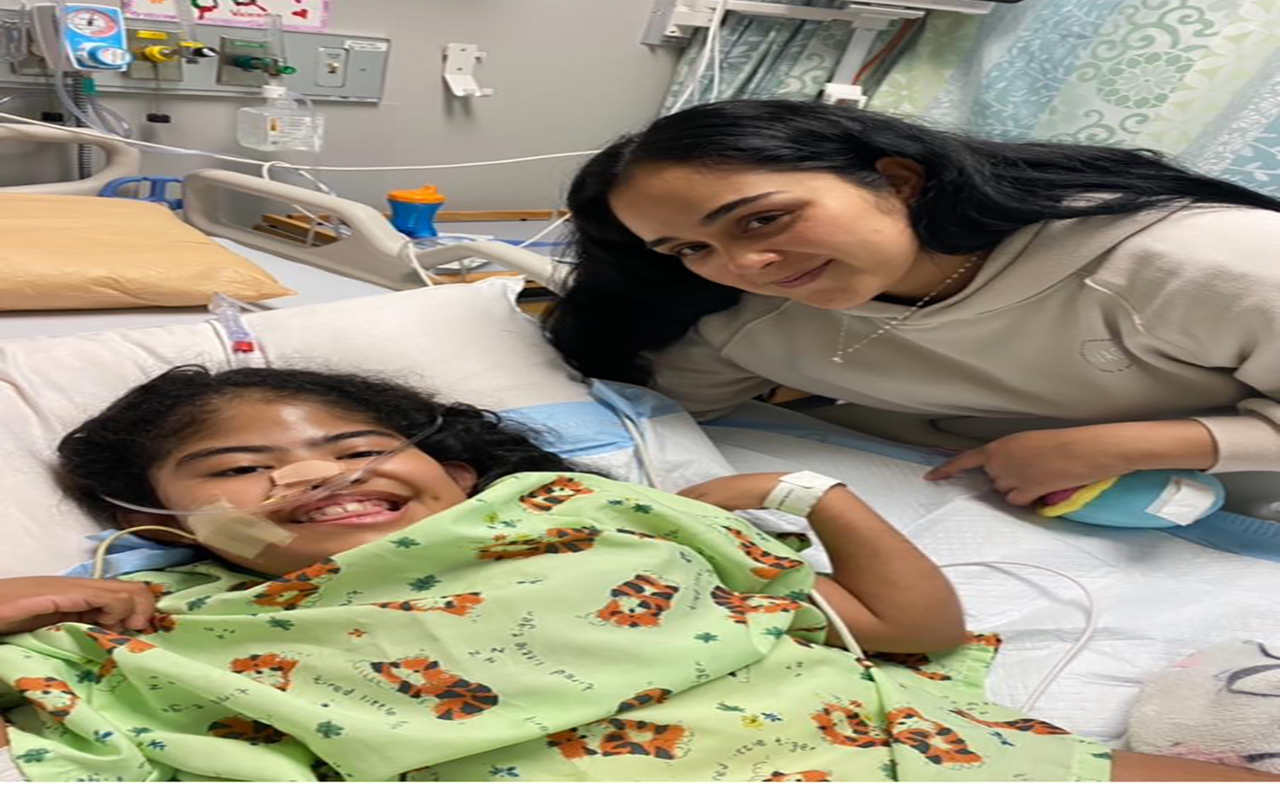
Giving someone a second chance at life
“I smile when I think about that person who is walking around here, breathing, taking their next step," said a mother who decided to donate her son's organs.
Four years ago India Lamar, of Northeast Philadelphia, received a phone call. Her son Peter had been shot.
“It was the worst day of my life,” she said. “But it was a blessing, not in the way that he was shot, but that he was brought here (to Temple). I can never thank them, they hold a special place in my heart.”
Lamar’s son spent eight days at Temple University Hospital (TUH). He died 10 days after his 26th birthday.
“My son was a loving person,” said Lamar. “He was always there for people. He always tried to help people.”
That is why, when Lamar was presented the option to donate her son’s organs, she said yes.
“I know this is something that he would have done,” said Lamar. “No matter what, he was there. No matter who it was, he was there. He was always there.”
According to Lamar, at least three people were given the chance of a new life thanks to the selfless act.
“This is why I did this, because of him,” Lamar said. “Because even though I know he is not here with me, in my mind he is because I know he helped those people. My mind tells me he still walks this earth.”
This story is just one of the many involving the 450 organs transplants performed at Temple University Hospital since 2012.
In 2015 alone, the Gift of Life Donor Program — the non-profit, federally designated organ procurement organization (OPO) serving the eastern half of Pennsylvania, southern New Jersey and Delaware — coordinated 483 local organ donations, which resulted in 1,291 organ transplants in the region.
One of the recipients was John Mullin. He was diagnosed in 2011 with idiopathic pulmonary fibrosis (IPF), “a degenerative disease that in many cases, those diagnosed only have a four to five years of life expectancy,” Mullin said.
He explained that although there are now drugs available — they were approved by the FDA in 2014 — they are not a cure. The most they can do is help to slow the progress of the illness.
Mullin said went to Temple University Hospital not long after his diagnosis.
“I participated in a drug study program with the lung center and continued pretty much living my life as I did before, but I had some limitations,” he said. “I would be out of breath when I went up and down stairs if was carrying something heavy and the coughing just never went away. It could last anywhere from 10 to 45 seconds.”
It wasn’t until the fall of 2014 that he went through evaluations for a transplant.
“It’s a long and very grueling set of tasks that have to occur,” Mullin said. “In some cases the findings of one test lead them to another test and that leads them to see specialists to make sure everything is covered.”
He was listed for a lung transplant in January 2015.
“Being on a transplant list and waiting, it’s a difficult thing from a mind perspective,” he said.“You are very anxious and you are nervous. You hear the phone ring and think, ‘is that it?’”
He was continuing with his normal life until, in August 2015, he went through a triple bypass surgery at Temple. He was out after 21 days and took a break from working for about three months.
Mullin went back to work in November of last year. Two and a half days later, he finally got a phone call from Temple.
“They told me they may have a match,” he said. “I came back in and on November the 5th I had my transplant. I was in for 11 days. I recovered very very quickly.”
After a few weeks of recovery, he got back to work in February.
"It’s been a long journey in a relatively short period of time, as far as my medical treatment is concerned”, he said. "But at the same time I’m just so fortunate My motto, and I kind of had this develop in my mind as I was here at the hospital and not long after the transplant. That I felt so good, so energize and I felt happy. So my motto is: I’m humble, I’m healthy and I’m happy. And that’s what I’m leaving behind.”
Mullin is now working and doing things that are usually considered “normal” like a trip with his family, which is very rewarding and fulfilling for him.
"I think I probably did take a lot of things for granted for so many years. I’m trying to be as honest and open and grateful every day as I possible can be. And I know I wasn’t living that way before. I want to be an advocate for other people, I want to be an advocate for donor awareness and I want to be an advocate for IPF awareness.”
The importance of becoming a donor
Mullin explained that it’s important to know that being a donor is not limited to just organs. “You have tissues and other things that can be valuable to others.”
"For those that are not donors I try to tell them that there are no barriers to doing that,” he explained. "Really the most important thing is you share with others and that your family knows all your wishes. It’s something you can take great satisfaction knowing what you are going to do for other people.”
Anyone can contribute to organ transplant awareness. For example, Pennsylvania drivers, as Mullin explained.
"If you live in the state of Pennsylvania, you’ll probably own a car, you have a registration on it. On the form to have that car registration renewed, there is an option to give $1 to help organ transplant awareness.”
For Lamar, “It’s a softness act and even though our child won’t be here anymore, it helps others. It gives someone a second chance. We might have not been able to have that second chance but then we have the chance to look towards other people that have benefit for our loved ones. And that’s a good thing.”
“I smile when I think about that person who is walking around here, breathing, taking their next step,” Lamar said. “And these are the things that we take for granted.”










LEAVE A COMMENT: